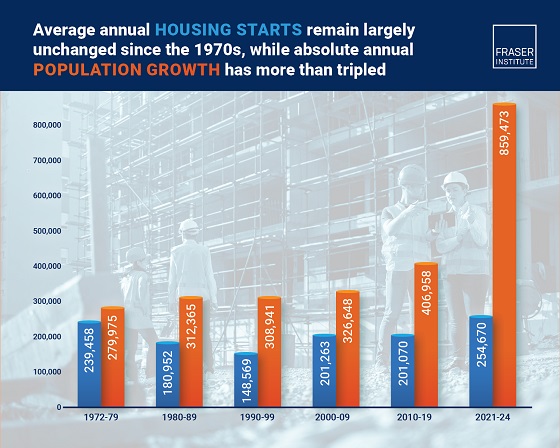News
Red Deer Catholic Board To Consider Modular Requests
By Sheldon Spackman
The Red Deer Regional Catholic School Board meets Tuesday evening and among the items they will consider, are a request from administration to add some new modulars to Father Henri Voisin Elementary School in the Clearview Ridge neighbourhood.
Staff are asking for three additional modulars at the school to accomodate anticipated student population growth in the coming years and to relocate two modulars from Notre Dame High School to St. Elizabeth Seton as well.
Trustees will also consider a name change from St. Gabriel Cyber School to St. Gabriel Online School as well as St. Gabriel Cyber Summer School to St. Gabriel Online Summer School.
Elsewhere, the Board will receive updates Tuesday night on some Capital projects that remain ongoing throughout the District. They include upgrades to the John Wilson portion of St. Marguerite Bourgeoys School in Innisfail where crews will begin the final phase of renovations to the library wing in the coming months.
At St. Gregory the Great Catholic School in Blackfalds, officials say site paving is complete. Interior floor grinding has been completed and most of the interior wall are installed on the second floor. The exterior block and metal siding is progressing along with the mechanical and electrical rough in.
At St. Joseph’s High School in Red Deer, the paving is almost complete and most of the trees planted. Work is continuing on the landscape prep. The learning pods are at the point of
becoming dust free which means the floor protection will be removed and final coat
of paint and ceiling tiles will begin to be installed.
Finally, work is continuing on the exterior work of the parking lot and landscaping at St. Francis of Assisi Middle School in Red Deer.
International
UK Supreme Court rules ‘woman’ means biological female

Susan Smith (L) and Marion Calder, directors of ‘For Women Scotland’ cheer as they leave the Supreme Court on April 16, 2025, in London, England after winning their appeal in defense of biological reality
From LifeSiteNews
By Michael Haynes, Snr. Vatican Correspondent
The ruling, in which the court rejected transgender legal status, comes as a victory for campaigners who have urged the recognition of biological reality and common sense in the law.
The U.K. Supreme Court has issued a ruling stating that “woman” in law refers to a biological female, and that transgender “women” are not female in the eyes of the law.
In a unanimous verdict, the Supreme Court of the United Kingdom ruled today that legally transgender “women” are not women, since a woman is legally defined by “biological sex.”
Published April 16, the Supreme Court’s 88-page verdict was handed down on the case of Women Scotland Ltd (Appellant) v. The Scottish Ministers (Respondent). The ruling marks the end of a battle of many years between the Scottish government and women’s right campaigners who sought to oppose the government’s promotion of transgender ideology.
In 2018, the Scottish government issued a decision to allow the definition of “woman” to include men who assume their gender to be female, opening the door to allowing so-called “transgender” individuals to identify as women.
This guidance was challenged by women’s rights campaigners, arguing that a woman should be defined in line with biological sex, and in 2022 the Scottish government was forced to change its definition after the court found that such a move was outside the government’s “legislative competence.”
Given this, the government issued new guidance which sought to cover both aspects: saying that biological women are women, but also that men with a “gender recognition certificate” (GRC) are also considered women. A GRC is given to people who identify as the opposite sex and who have had medical or surgical interventions in an attempt to “reassign” their gender.
Women Scotland Ltd appealed this new guidance. At first it was rejected by inner courts, but upon their taking the matter to the Supreme Court in March last year, the nation’s highest judicial body took up the case.
Today, with the ruling issued against transgender ideology, women’s campaigners are welcoming the news as a win for women’s safety.
“A thing of beauty,” praised Lois McLatchie Miller from the Alliance Defending Freedom legal group.
“They looked at the whole argument, not just who goes in what bathroom and trans women. This is going to change organizations, employers, service providers,” Maya Forstater, chief executive of Sex Matters, told the Telegraph. “Everyone is going to have to pay attention to this, this is from the highest court in the land. It’s saying sex in the Equality Act is biological sex. Self ID is dead.”
“Victory,” commented Charlie Bently-Astor, a prominent campaigner for biological reality against the transgender movement, after she nearly underwent surgical transition herself at a younger age.
“After 15 years of insanity, the U.K. Supreme Court has ruled that men who say they are ‘trans women’ are not women,” wrote leader of the Christian political movement David Kurten.
Leader of the Conservative Party – the opposition to the current Labour government – Kemi Badenoch welcomed the court’s ruling, writing that “saying ‘trans women are women’ was never true in fact and now isn’t true in law, either.”
Others lamented the fact that the debate even was taking place, let alone having gone to the Supreme Court.
“What a parody we live in,” commented Reform Party candidate Joseph Robertson.
Rupert Lowe MP – who has risen to new prominence in recent weeks for his outspoken condemnation of the immigration and rape gang crisis – wrote, “Absolute madness that we’re even debating what a woman is – it’s a biological fact. No amount of woke howling will ever change that.”
However, the Supreme Court did not wish to get pulled into siding with certain arguments, with Lord Hodge of the tribunal stating that “we counsel against reading this judgment as a triumph of one or more groups in our society at the expense of another. It is not.”
The debate has taken center stage in the U.K. in recent years, not least for the role played by the current Labour Prime Minister Keir Starmer. Starmer himself has become notorious throughout the nation for his contradictions and inability to answer the question of what a woman is, having flip-flopped on saying that a woman can have a penis, due to his support for the transgender movement.
At the time of going to press, neither Starmer nor his deputy Angela Rayner issued a statement about the Supreme Court ruling. There has been no statement issued from the Scottish government either, nor from the office of the first minister.
Transgender activists have expectedly condemned the ruling as “a disgusting attack on trans rights.” One leading transgender campaigner individual told Sky News, “I am gutted to see the judgement from the Supreme Court which ends 20 years of understanding that transgender people with a GRC are able to be, for all intents and purposes, legally recognized as our true genders.”
International
Tulsi Gabbard tells Trump she has ‘evidence’ voting machines are ‘vulnerable to hackers’

From LifeSiteNews
By Stephen Kokx
Last month, Trump signed an executive order directing federal election-related funds to be conditioned on states “complying with the integrity measures set forth by Federal law, including the requirement that states use the national mail voter registration form that will now require proof of citizenship.”
Director of National Intelligence Tulsi Gabbard announced during a Cabinet meeting last week at the White House that voting machines across the U.S. are not secure.
“We have evidence of how these electronic voting systems have been vulnerable to hackers for a very long time, and vulnerable to exploitation to manipulate the results of the votes being cast,” she said about a half hour into the meeting.
Gabbard’s remarks confirm what millions of Americans have long suspected about elections across the U.S.
President Donald Trump himself has maintained skepticism of current voting methods and has called for paper ballots to prevent cheating.
MyPillow CEO Mike Lindell was one of only a few voices to publicly argue that voting machines, like those run by Dominion and Smartmatic which were used during the 2020 presidential election, were compromised. GOP Congresswoman Marjorie Taylor-Greene took to X to praise the businessman after Gabbard made her remarks.
“Mike Lindell along with MANY others vindicated!!” she exclaimed on X. “Another conspiracy theory being proven right! Guess what Democrats already knew this and publicly talked about it in 2019! And then lied and lied and lied!!!”
Last month, Trump signed an executive order directing federal election-related funds to be conditioned on states “complying with the integrity measures set forth by Federal law, including the requirement that states use the national mail voter registration form that will now require proof of citizenship.”
Congress has also taken steps to ensure election integrity by voting on the Safeguard American Voter Eligibility Act (also known as the SAVE Act) last week. Dubbed “controversial” by the media and left-wing groups, the common sense bill would require persons to show proof of citizenship before voting. The House approved the measure 220-208 with four Democrats in support. The bill now heads to the Senate where it will face an uphill battle for the required 60 votes. Republicans currently have a 53 seat majority.
Gabbard told Trump at the meeting that the evidence she found “further drives forward your mandate to bring about paper ballots across the country so that voters can have faith in the integrity of our elections.”
-

 illegal immigration2 days ago
illegal immigration2 days agoDespite court rulings, the Trump Administration shows no interest in helping Abrego Garcia return to the U.S.
-

 2025 Federal Election2 days ago
2025 Federal Election2 days agoEuthanasia is out of control in Canada, but nobody is talking about it on the campaign trail
-

 2025 Federal Election2 days ago
2025 Federal Election2 days agoConservative MP Leslyn Lewis warns Canadian voters of Liberal plan to penalize religious charities
-

 2025 Federal Election17 hours ago
2025 Federal Election17 hours agoRCMP Whistleblowers Accuse Members of Mark Carney’s Inner Circle of Security Breaches and Surveillance
-

 2025 Federal Election2 days ago
2025 Federal Election2 days agoHousing starts unchanged since 1970s, while Canadian population growth has more than tripled
-

 Education2 days ago
Education2 days agoSchools should focus on falling math and reading grades—not environmental activism
-

 Autism1 day ago
Autism1 day agoAutism Rates Reach Unprecedented Highs: 1 in 12 Boys at Age 4 in California, 1 in 31 Nationally
-

 Health1 day ago
Health1 day agoTrump admin directs NIH to study ‘regret and detransition’ after chemical, surgical gender transitioning





